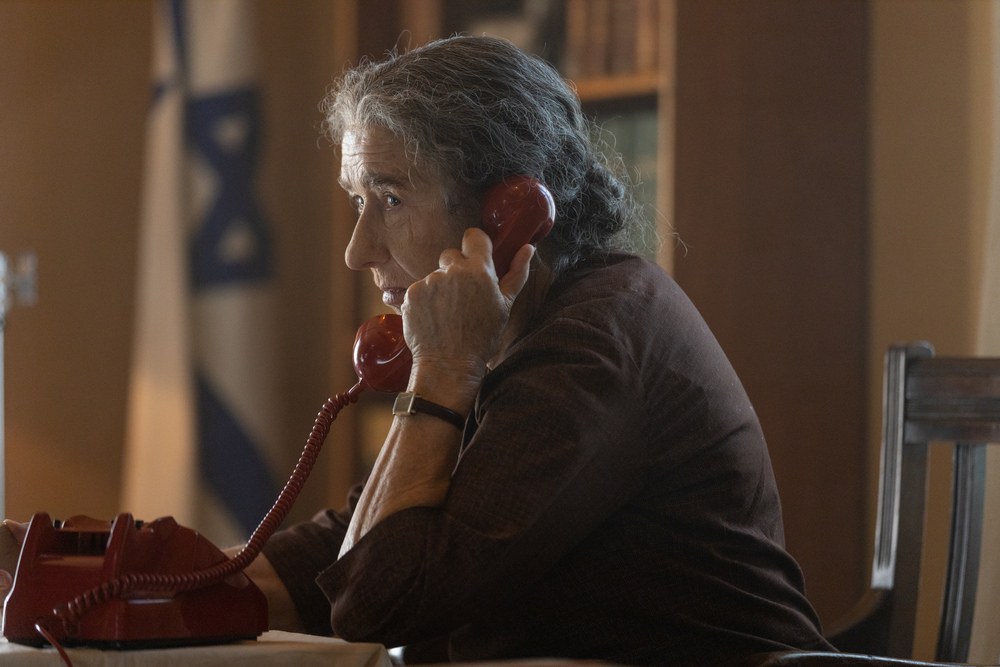Golda

Helen Mirren stars in GOLDA. (Photo: Bleecker Street)
“All political careers end in failure,” reasons the title character to future Israeli leader Ariel Sharon during Golda, a film that ultimately tries to argue the opposite.
Rather than offering a complete portrait of her life, this thoughtful biopic from director Guy Nattiv (Skin) considers the legacy of groundbreaking Israeli prime minster Golda Meir through the 1973 Middle East conflict known as the Yom Kippur War, during which she shaped a period of intense turmoil.
It depicts a world leader both resilient and stubborn whose soft-spoken demeanor and grandmotherly appearance might fool you. However, with only moderate historical insight and a muddled sociopolitical perspective, the result feels indecisive, unlike Golda herself.
It’s set primarily during a three-week period more than four years into her premiership when Israel engaged in military combat with Egypt, which was trying to retake control of the Sinai Peninsula after Israel seized it six years earlier.
The dispute draws vested interest from Syria and the Soviet Union, and also from the United States, who was immersed in Watergate fallout at the time. Golda is close with Henry Kissinger (Liev Schreiber) yet wary of compromises and motives in his peace plan.
The film also intersperses post-war sequences of Golda’s interrogation by a committee of investigators about the human toll of the conflict and her responsibility for the bloodshed.
Mirren’s fully committed performance goes beyond physical mannerisms and facial prosthetics in a contemplative study of mortality and loneliness via an unassuming yet fiercely dedicated bureaucrat haunted by her past.
An early dialogue-free sequence reflects the film’s reluctance to flatter its subject, showing a pill-popping chain smoker with a weathered face, hunched posture, and unsteady gait.
However, aside from those vices and superficialities, it positions Golda as misunderstood, arguing that she was loyal to a fault, and supported peace against impossible odds.
Perhaps that’s true, but the screenplay by Nicholas Martin (Florence Foster Jenkins) is uninvolving as a political thriller and incomplete as a recap of Golda’s background and rise to power. It remains emotionally detached while struggling to penetrate her steely gaze.
Rarely straying from its parade of boardroom briefings and behind-the-scenes diplomacy, the film comes into sharper focus in the intriguing final act, when the stakes are raised for Golda and for Israel. Still, by that time, the battle for moviegoer empathy has already been lost.
Rated PG-13, 100 minutes.